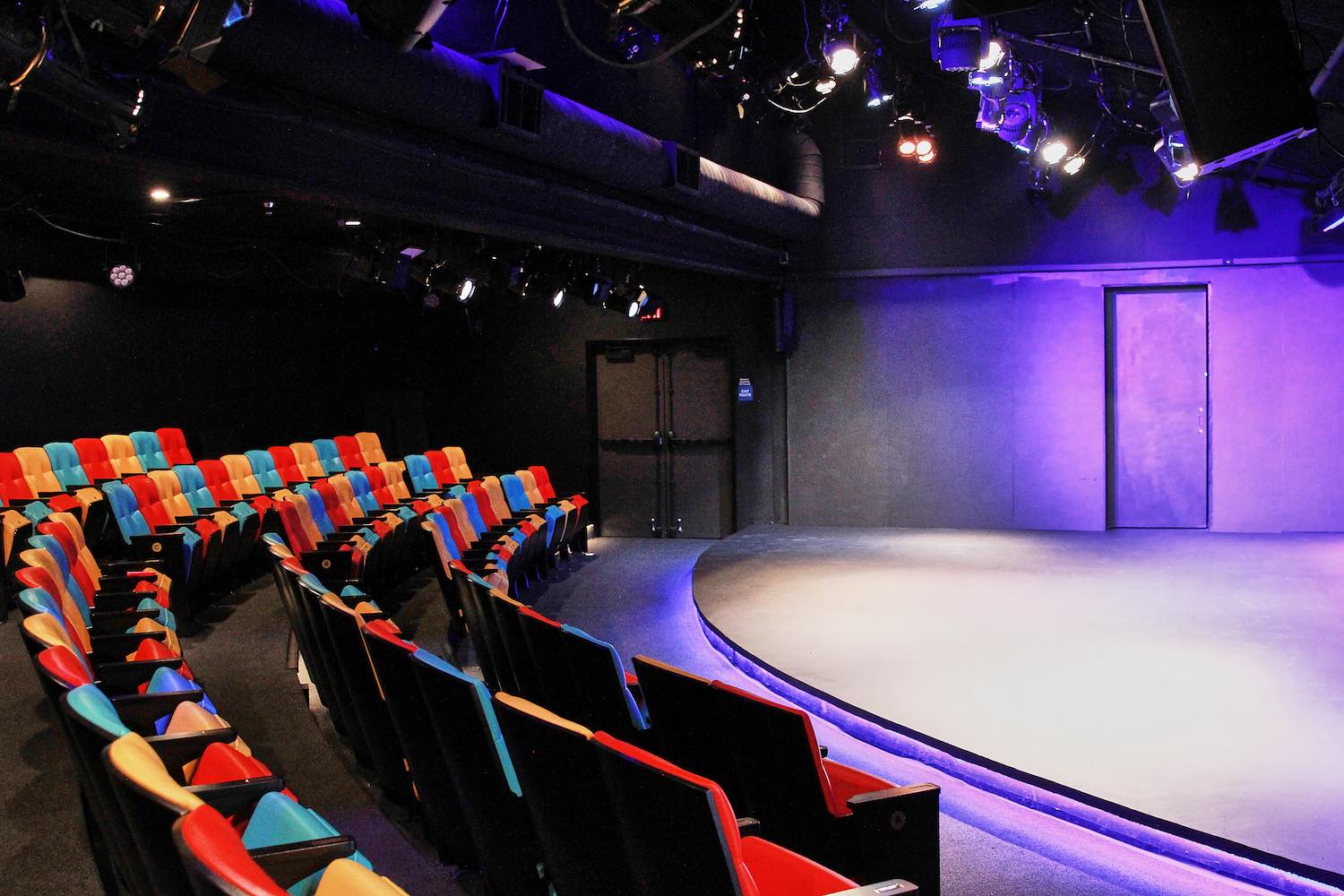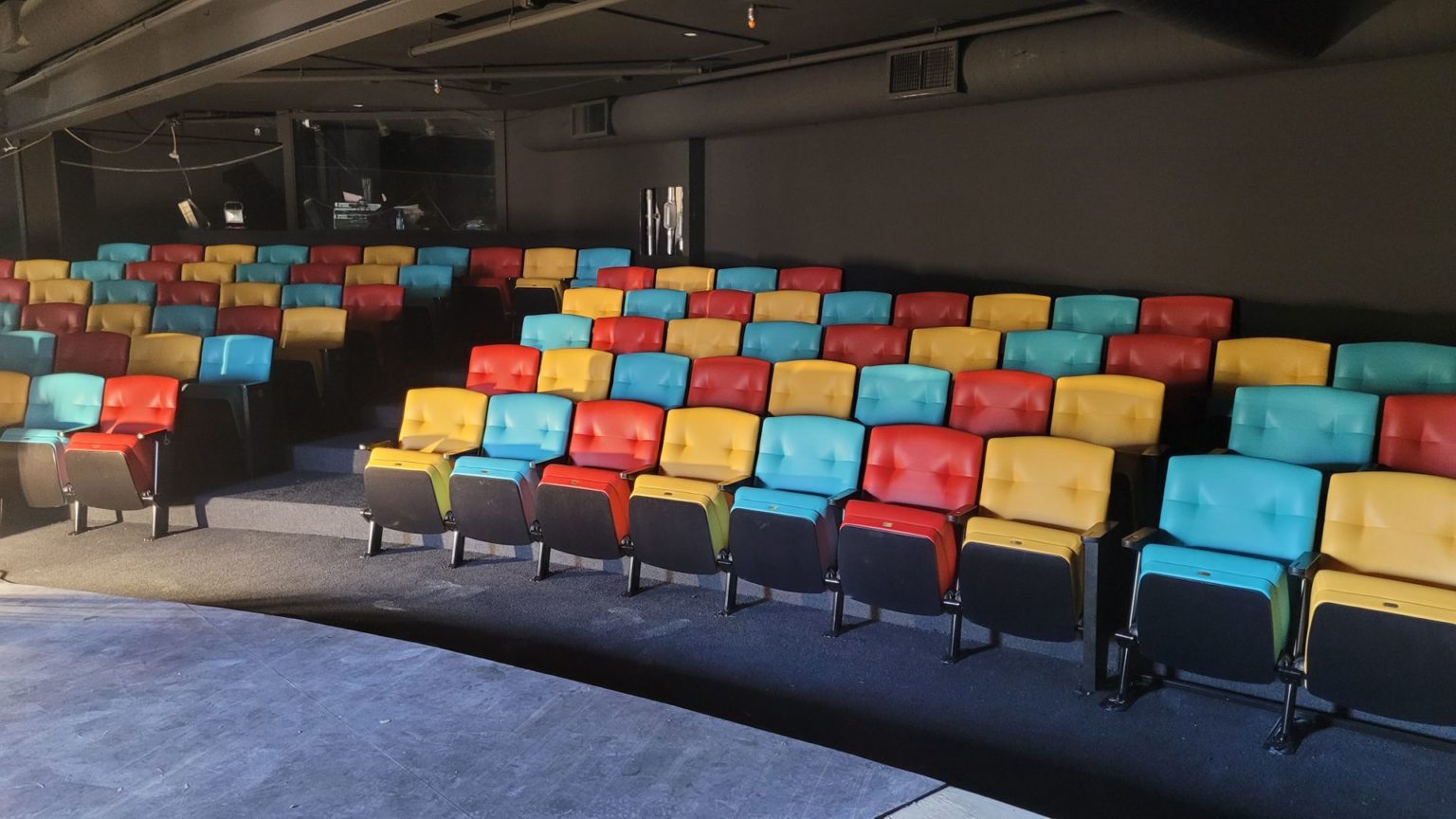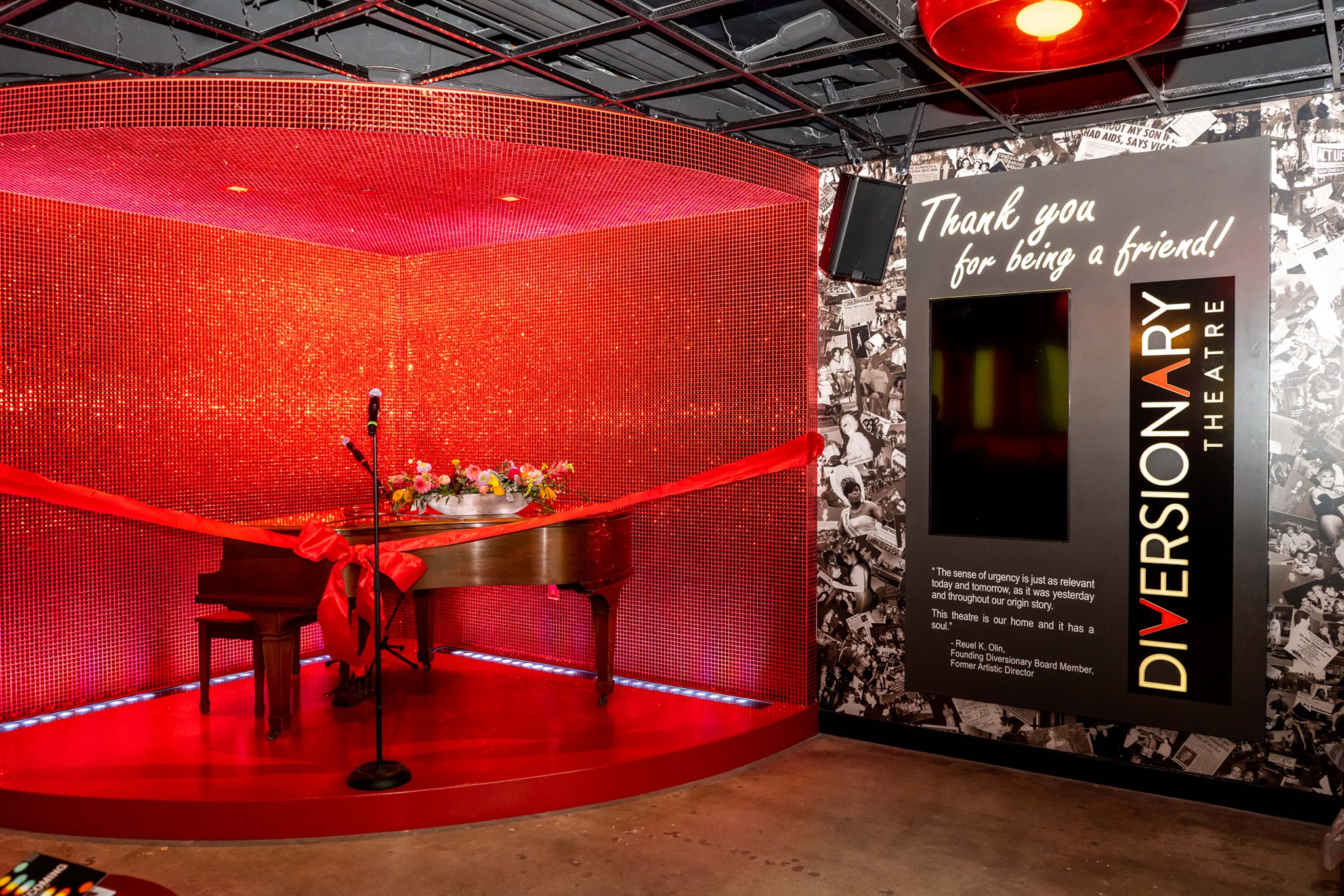Diversionary Theatre - Shifting Focus On Stage
Sometimes, what we see on stage is meant to do more than just tell a story; it’s there to pull our thoughts somewhere else. This idea of something "diversionary" is about taking our focus from what might be the main thing on our minds, or perhaps a difficult situation, and shifting it to a different spot. It’s a bit like a gentle tug on your sleeve, getting you to look at something new. In the theatre, this can mean a performance that works to get your mind off of other matters, or maybe uses clever tricks to make you think about one thing when something else is truly happening. It’s all about where attention goes, and how it can be guided.
This kind of theatre, so, isn't always about deep messages or challenging ideas. Often, its aim is to provide a break, a temporary pause from the everyday. It might offer a chance to simply enjoy something light, or to get lost in a world that is completely different from our own. Think of it as a moment to breathe, to let your mind wander into a fictional place for a while.
We’ll explore what this type of stage work really means, how it might operate, and why people often look for it. We will also consider its various forms and the ways it can affect those who experience it. Pretty much, we will talk about how theatre can be a way to change what you are thinking about.
Table of Contents
- What is Diversionary Theatre?
- How Does Diversionary Theatre Work?
- Why Do We Seek Diversionary Theatre?
- Can Diversionary Theatre Be More Than Just a Distraction?
- What Forms Does Diversionary Theatre Take?
- Is Diversionary Theatre a New Idea?
- What Are the Effects of Diversionary Theatre on Audiences?
- Where Can We See Diversionary Theatre in Action?
What is Diversionary Theatre?
Diversionary theatre, at its core, is any stage performance that works to pull attention away from something else. This could be a big worry, a daily chore, or perhaps some heavy news. It's about a purposeful shift of focus. The word "diversionary" itself points to something meant to get your mind on something else, to turn your gaze from one point to another. So, when we talk about this kind of theatre, we are speaking of plays, musicals, or even acts that have this specific effect on those watching. It's about providing a temporary mental escape, a place where current thoughts might just fade for a bit.
This type of theatre isn't always about a deep message or a call to action. Sometimes, it’s just about giving people a break. It might be a funny play that makes you laugh so hard you forget your troubles, or a grand spectacle that fills your senses with wonder. The goal is to redirect where your mind is going, to give it a different path for a short while. It’s pretty much about offering a mental detour, if you will.
The nature of this redirection can be quite varied. It might be a subtle shift, or it could be a very obvious one. For example, a play could use fast-paced dialogue or surprising plot twists to keep you so engaged that you have no room to think about anything else. Or, it could be a performance that simply presents a pleasant, calm scene, allowing your mind to rest. It really just depends on what the creators hope to achieve with their diversionary theatre piece.
In a way, this kind of theatre recognizes that people sometimes need a pause from the usual flow of life. It offers a structured space for that pause to happen. The stage becomes a place where the outside world can be set aside, even if only for a few hours. This makes it a rather unique kind of artistic experience, as its primary function is often about changing mental states rather than just presenting a story.
How Does Diversionary Theatre Work?
So, how does diversionary theatre actually manage to pull your attention? Well, it often uses a mix of elements. Think about bright lights, loud music, or quick, funny lines. These things can grab your focus immediately. It might also use stories that are very different from real life, perhaps tales of far-off lands or fantastical beings. The idea is to create a world on stage that is so absorbing, your mind just naturally drifts into it.
Sometimes, the way diversionary theatre works is by giving you something very simple and easy to follow. You don't have to think too hard or try to solve a puzzle. You can just sit back and let the performance wash over you. This ease of engagement can be a powerful way to make you forget about other things, because your mind isn't working on anything difficult. It's just enjoying the show, kind of.
Another method involves creating a strong emotional pull. A very touching scene might make you feel sad or happy, and those feelings can take over your thoughts for a bit. Or, a thrilling moment might get your heart racing, making it hard to focus on anything but what is happening right in front of you. This emotional connection is a very effective tool for shifting attention in diversionary theatre.
The pacing of the show also plays a big part. A very fast-moving play, with scenes changing quickly and dialogue flying, can leave little room for your mind to wander. You have to keep up with what's happening. On the other hand, a slow, calming performance might offer a different kind of diversion, one that encourages relaxation rather than intense focus. It’s really about guiding your mind’s activity.
Why Do We Seek Diversionary Theatre?
People look for diversionary theatre for many different reasons. One very common reason is simply to get a break from the everyday grind. Life can be tough, with responsibilities and worries always present. Going to a show that helps you forget those things, even for a little while, can feel like a breath of fresh air. It's a chance to step outside your own head, you know?
Another reason is the simple pleasure of being entertained. Sometimes, we just want to laugh, or feel excited, or be moved by a story. Diversionary theatre can offer those feelings without asking us to think too deeply about complex issues. It’s a form of enjoyment that is pretty direct and satisfying.
For some, it's about finding a sense of wonder. The theatre can create illusions and spectacles that are truly amazing to see. These moments of awe can be very effective at pulling your attention away from mundane things and placing it onto something truly special. It’s like being transported to another place, just for a moment.
There are also times when people might be dealing with personal difficulties. In those moments, a show that offers a temporary escape can be a real comfort. It provides a space where the weight of those troubles can be lifted, if only for the duration of the performance. It offers a kind of mental vacation, really.
Can Diversionary Theatre Be More Than Just a Distraction?
While the main goal of diversionary theatre is to shift attention, it can, in some ways, do more than just distract. Think about it: even if a show is light and fun, it might still introduce you to new ideas or different ways of looking at things, just in a very gentle manner. It might make you smile, and that feeling can stay with you, affecting your mood even after the show is over.
Sometimes, a show that seems purely for fun can actually spark a conversation later. You might talk about the characters, the funny lines, or the amazing visuals. These discussions, in a roundabout way, can connect people and create shared experiences. So, the initial distraction can lead to something a bit deeper, you see.
A performance that helps you relax and forget your worries might also indirectly help you come back to your main concerns with a fresher mind. Taking a break often allows for new perspectives to form, or for stress to lessen, which can then help you deal with real-life situations better. It’s almost like a mental reset button, in a way.
So, while the immediate purpose of diversionary theatre is often about pulling focus elsewhere, its effects can sometimes ripple out into other parts of life. It’s not always about a profound message, but the experience itself can still have a quiet, lasting impact on a person's well-being or outlook. It can be a very subtle influence, too.
What Forms Does Diversionary Theatre Take?
Diversionary theatre can show up in many different shapes and sizes. One common form is the light comedy or farce. These plays are packed with funny situations, mistaken identities, and quick jokes, all designed to make you laugh and forget everything else. The rapid pace and silly plots are very good at keeping your mind busy with the fun on stage.
Musicals, especially those with big dance numbers and catchy songs, often serve as diversionary theatre. The combination of music, movement, and story can be incredibly immersive, pulling you into a world of song and dance. It’s hard to think about your grocery list when a whole cast is singing and dancing their hearts out, isn't it?
Spectacle-driven shows, like those with amazing acrobatics, magic acts, or elaborate sets, also fit this idea. These performances rely on visual wonder to capture and hold your attention. They are designed to make you say "wow," and that feeling of awe is a powerful way to shift your focus from anything else.
Even some dramas, if they are particularly gripping or suspenseful, can be diversionary. If a story has you on the edge of your seat, desperate to know what happens next, then your mind is completely absorbed by the plot. You're not thinking about your own life; you're living the story with the characters, sort of.
Is Diversionary Theatre a New Idea?
The idea of theatre as a way to shift attention is certainly not new. People have been using performances for this purpose for a very long time, actually. Think about the ancient Roman circuses, for example. These grand events with chariot races and gladiatorial contests were meant to keep the public entertained and, in some respects, distracted from political unrest or daily hardships.
Even earlier forms of storytelling, like oral traditions or early rituals, might have served a similar purpose. Gathering to hear a tale or witness a ceremonial act could have been a way for communities to focus their collective attention on something outside their immediate concerns, if only for a short time. It provided a shared experience that pulled them together.
Through the centuries, jesters in courts, traveling players, and even the popular comedies of Shakespeare's time often had an element of diversion. They offered a break from the ordinary, a chance to laugh or be amazed. The need for people to step away from their daily lives and find some form of mental relief has always been present.
So, while the term "diversionary theatre" might sound a bit formal, the concept behind it is as old as performance itself. It speaks to a very human need for escape, for a change of pace, and for moments when our minds can be fully absorbed by something other than our usual thoughts. It’s a pretty timeless concept, you know.
What Are the Effects of Diversionary Theatre on Audiences?
When people experience diversionary theatre, the effects can be quite varied. For many, the immediate feeling is one of relief or lightness. It’s like a temporary vacation for the mind, where worries just fade into the background. This can lead to a feeling of refreshment, making people feel a bit more ready to face their everyday lives once the show is over.
Another effect is a sense of shared experience. Even if the show is just for fun, being in a room with other people who are also laughing or gasping at the same moments creates a bond. This collective feeling can be very positive, making individuals feel less alone and more connected to those around them. It’s a pretty neat way to bring people together, too.
Sometimes, diversionary theatre can also spark imagination. By showing things that are out of the ordinary or creating worlds that are purely fictional, it can encourage people to think creatively or dream a little. This mental stimulation, even if it's not about solving a problem, can be a welcome change from routine thinking.
It can also provide a safe space for emotions. A funny play allows for laughter, a thrilling show for excitement, and even a slightly sad one for a gentle release of feeling. These emotional outlets, in a controlled environment, can be quite healthy. It allows people to feel without the pressure of real-world consequences, just for a little while.
Where Can We See Diversionary Theatre in Action?
You can spot diversionary theatre in many places, really. Think about the big, flashy shows on Broadway or in London's West End. Many of these, with their grand sets, elaborate costumes, and well-known songs, are designed to transport you completely. They offer a full sensory experience that makes it very easy to forget about the outside world.
Local community theatres often put on lighthearted comedies or classic musicals, too. These productions, while perhaps on a smaller scale, still aim to give their audiences a good time and a break from their daily routines. They provide an accessible way for people to experience that shift in focus.
Circus performances, with their amazing acts of skill and daring, are another clear example. The sheer spectacle and the sense of wonder they create are incredibly effective at pulling your attention away from everything else. You’re just absorbed by the incredible feats happening right in front of you.
Even some street performers, with their quick wit and surprising tricks, can offer a moment of diversion. They grab your attention for a few minutes, making you smile or gasp, and for that short time, your mind is entirely on their act. It's a spontaneous, brief moment of shifting focus, you know.

Theatre Rental - Diversionary Theatre

Theatre Rental - Diversionary Theatre

Theatre Rental - Diversionary Theatre